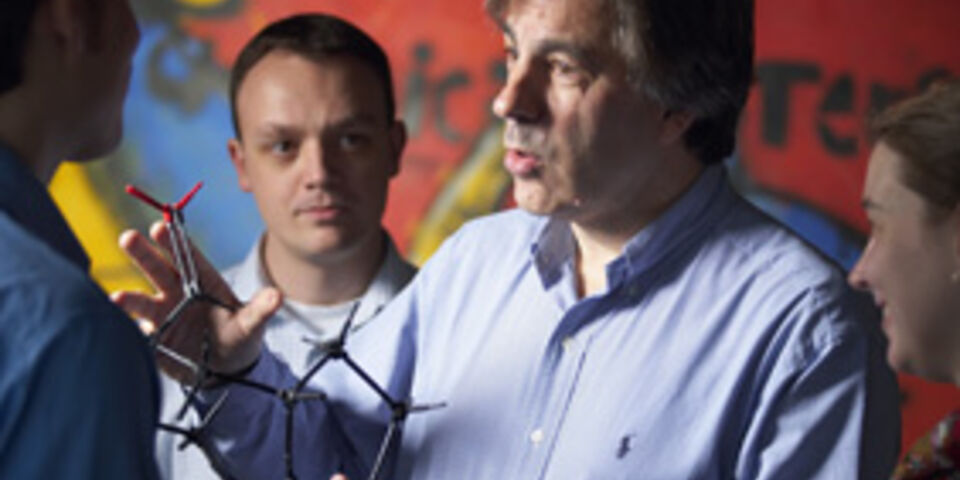Bert Meijer appointed as Academy Professor by KNAW
The Royal Netherlands Academy of Arts and Sciences (KNAW) will this year award the Academy Professor prize to TU/e professor Bert Meijer and biological psychologist Dorret Boomsma of the VU University Amsterdam. The prize recognizes the lifetime work of researchers who are among the world top in their fields, according to the KNAW. The two scientists will each receive an award of one million euros, to be used for a scientific goal of their own choosing.
Each year two researchers receive the Academy Professor Prize: one of them from the social sciences and humanities, and the other from the natural sciences, the technical sciences or the life sciences. The prize recognizes the lifetime work of scientists aged between 54 and 59 who have proved that they are among the world top in their fields. The two winners are selected by an international jury appointed by the KNAW. The prizes will be presented on 26 June in the Trippenhuis in Amsterdam, the seat of the KNAW.
Prof.dr. E.W. Meijer (59) is professor of Organic Chemistry at Eindhoven University of Technology (TU/e). He is among the world leaders in the field of ‘supramolecular polymers’ – new biological materials with special properties.
Classical polymers such as nylon consist of small molecules with strong chemical bonds. They are suitable for making materials like high-strength fibers. Bert Meijer developed polymers of a very different kind, consisting of large, relatively weakly bonded molecules. These are new materials with innovative applications.
Meijer started his career as a researcher at Philips and DSM, and jointed TU/e in 1991. Initially he concentrated on ‘dendrimers’: sponge-like bioplastics with branched molecules. A typical application for which they are used is medical implants. More recently, Meijer has worked on ‘supramolecular self-assembling polymers’. This category of polymers, as the name indicates, consist of large molecules that group together spontaneously in even larger structures, in the same way as often happens in living organisms. The result is biological materials with new and special properties, such as a self-repairing capability after being damaged. In addition, Meijer works in the Institute for Complex Molecular Systems (ICMS) at TU/e on molecular self-assembly, a relatively new scientific field which draws its inspiration from nature itself.
Through his original and innovative research Meijer makes a significant contribution to fundamental science. He also has a passion for developing practical applications through his experience in industry. His work has led to innovative start-ups and major investments by multinationals.
Meijer publishes regularly in Science and Nature, as well as other world-leading journals. His work has tens of thousands of citations. He has been a member of the KNAW since 2003. He is an honorary member of the Chemical Research Society of India, and an extraordinary member of the German Academy of Science and Engineering.
In 2001 Meijer was awarded the Spinoza Prize by the Netherlands Organisation for Scientific Research (NWO), and in 2010 he received an Advanced Grant from the European Research Council. He has also received other awards including the Wheland Award from the University of Chicago and the Arthur C. Cope Scholar Award from the American Chemical Society.
Prof.dr. D.I. Boomsma (56) is professor of Biological Psychology at the VU University Amsterdam. Her reputation is due partly to the Netherlands Twin Register, an internationally leading list containing data about tens of thousands of twins. Twins are interesting for research into the influence of genetic predisposition and the environment within which children grow up. Identical twins share the same genetic background, and by comparing them with non-identical twins and ‘ordinary’ siblings researchers can learn about the extent to which genes contribute to specific characteristics.
Boomsma has been a member of the KNAW since 2001, and received the Spinoza Prize from the NWO in the same year.


Discussion